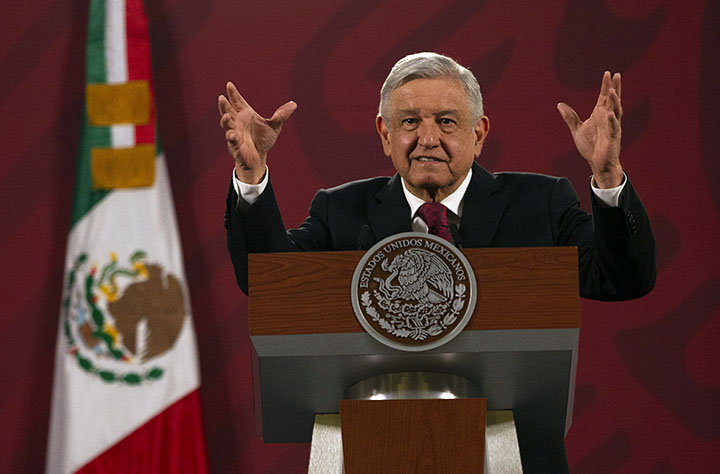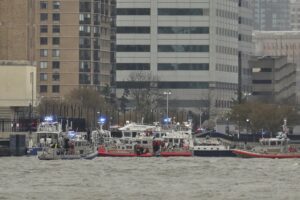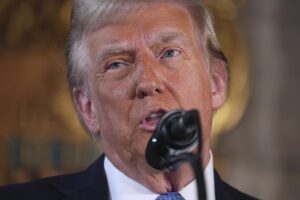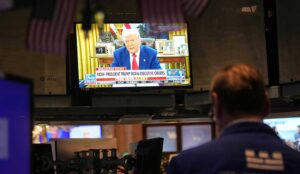MEXICO CITY — Mexican President Andréz Manuel López Obrador’s decision last week to put management of the country’s customs operations in the hands of the military has claimed one of his cabinet ministers who opposed the move.
López Obrador said Thursday, July 23, that he had accepted the resignation of Transportation Secretary Javier Jiménez Espriú. The president said he had a “dispute” with Jiménez, who thought Mexico’s sea ports should be managed by his agency.
“I believe that because of the current situation, because of the corruption that reigns in the ports, in customs and finally also because of the contraband and drugs entering the ports, we need in addition to good administration, we need security and protection in the ports, and for that reason the support of the Navy is required,” López Obrador said.
The president had announced last July 17 his decision to hand management of sea and land ports of entry over to the navy and the army. He used the example of the Pacific port of Manzanillo in explaining his decision.
“I’m very worried by what has happened in Colima,” López Obrador said. “It is a small state with very good people, and it is the state, the federal territory with the most homicides in the entire country; this is because of the port of Manzanillo.”
Rumors of Jiménez’s imminent departure had circulated since López Obrador’s announcement last week.
Management of sea and land ports of entry is the latest in a series of new roles López Obrador has entrusted to Mexico’s armed forces, which are now involved in everything from construction of government projects to running tree nurseries.
Jiménez’s departure is the clearest sign of civilian concern with the growing influence of the military within the president’s cabinet. Last year, Tonatiuh Guillén, resigned as director of the National Immigration Institute after Mexico, under pressure from the U.S., hardened its handling of migrants transiting the country. That policy shift included deploying the National Guard to help corral migrants.
The resignation was announced in an unusual video, posted by López Obrador, of him talking with Jiménez and Jorge Arganis Díaz Leal, Jiménez’s replacement as Transportation Secretary, inside the National Palace.
Most shipments of the synthetic opioid fentanyl and the precursor chemicals used to make it are believed to come from Asia through Pacific coast ports such as Manzanillo or Lazaro Cardenas to the south. Cartels use the same route to import chemicals used to make methamphetamines, often on an industrial scale.
The president said retired Navy officers would be put in charge of running all of Mexico’s ports.
In 2013, the government put the Navy in charge of the Lazaro Cardenas seaport of the neighboring state of Michoacan after the Knights Templar drug cartel reached such astonishing levels of control that it was found to be operating bulk freight yards and participating in the iron ore trade at the port.
The Associated Press is an independent global news organization dedicated to factual reporting. Founded in 1846, AP today remains the most trusted source of fast, accurate, unbiased news in all formats and the essential provider of the technology and services vital to the news business. The Trucker Media Group is subscriber of The Associated Press has been granted the license to use this content on TheTrucker.com and The Trucker newspaper in accordance with its Content License Agreement with The Associated Press.








